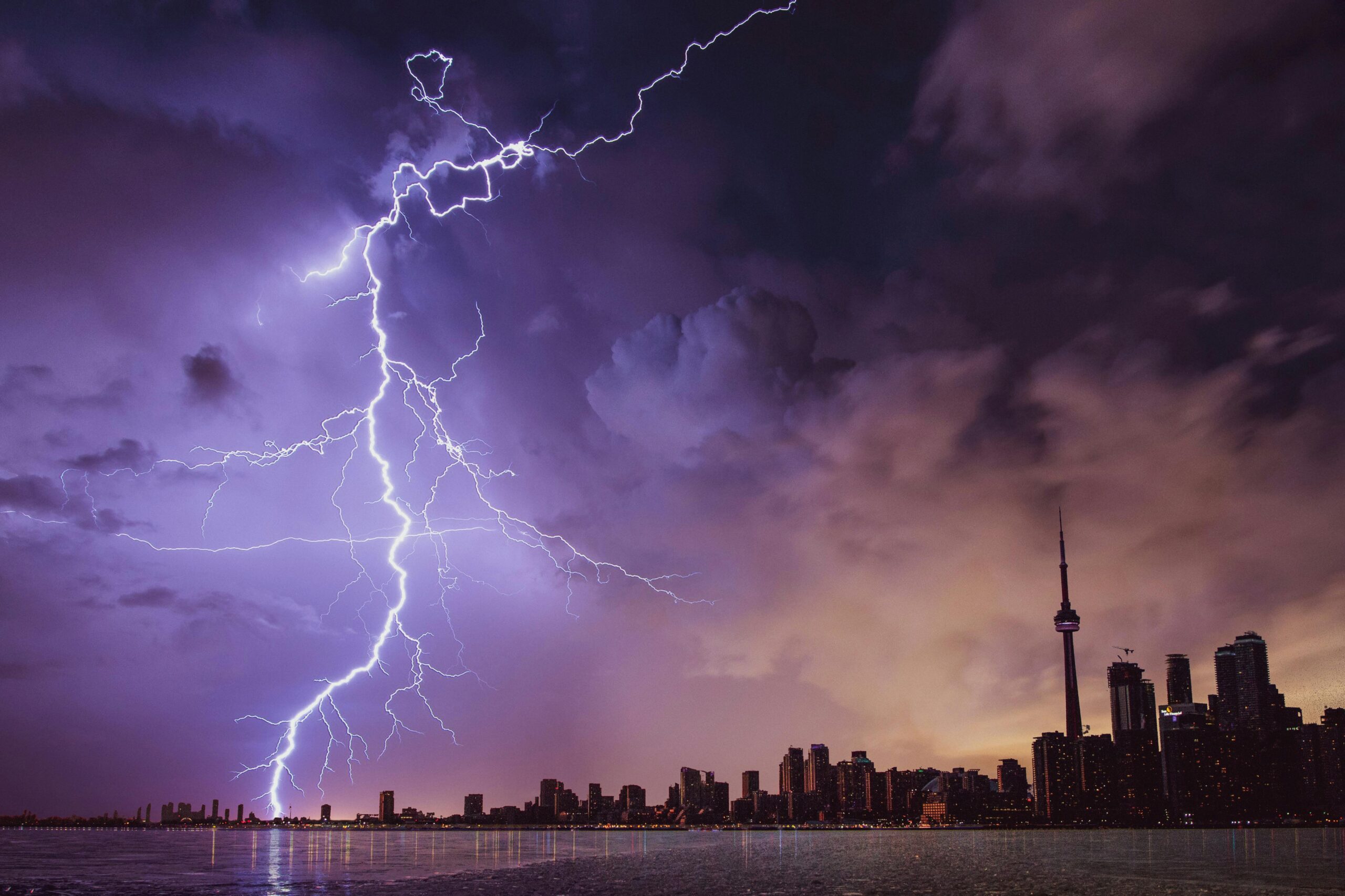Here’s how to reduce your risk…
By Dusty Miller
Every year, I seem to run across somebody who has had some lightning damage to their property. In the last few years, my neighbours at the cottage have been struck at least twice, thus disproving the old adage.
How common an occurrence is being struck by lightning? Well, while a good percentage of lightning bolts never connect with the ground, your chances of being hit by lightning are better than your chances of winning the lottery.
How serious is the risk? It depends on where you are. If you are sitting at home during a thunderstorm, you can relax and enjoy the light show because the likelihood of being electrocuted is quite low. But if you are out in your boat on the open water, it’s a completely different story there, you are a sitting target.
Before going any further into addressing the danger, here’s a quick science lesson. Lightning bolts that hit the ground may pack as much as 100,000,000 volts just enough power to light up a small town. Lightning occurs when the atmosphere is filled with droplets of water. This creates particles with a positive charge called protons. At the base of the clouds, particles carry a negative charge. Now with all this conflict, something has to happen. The invisible streamers of negatively charged particles shoot down from the clouds and the protons from earth shoot up toward the clouds. When the two connect–bang! Lightning!
So what do you do when you are out in your boat and a storm whips out of nowhere? Well, obviously, you try to protect yourself, your passengers and your property by doing as much as you can to reduce your risk of being hit. It goes without saying that when a storm approaches, if you can, head for the nearest harbour – any port in a storm, as the saying goes. If you can’t get to a harbour, move to as safe as a spot as you can. If I’m stuck out in the middle of the water, I always feel more comfortable riding out the storm surrounded by a bunch of sailboats since the tall masts reduce my risk of being hit.
Everything that I’ve said so far speaks to being reactive when a storm hits but there are some pro-active things that you can do. First, ensure that your vessel is grounded properly since this is likely your best protection. You do this by making sure that all your electrical equipment is wired to a common ground and onto a through-hull fitting. Next, make sure that you have a grounding plane. This is a metal plate mounted on the underside of the hull connected to a through-hull fitting and again connected to your electrical components.
Of course, the wire that you use to connect all this together should be of a sufficiently heavy gauge. If the wire is too thin, it will create resistance as the electricity surges through it and the charge will find its own path, sometimes right through the boat. An alternative is to install a lightning rod mounted on the highest position on your vessel. This creates a good route for the electricity to follow especially if it is connected securely to a grounding plane.
There is one other method that I have heard about, but have not personally worked with. It concerns the use of a static dissipater. This particular piece of equipment is turned on during a lightning storm and omits low amperage ions that help prevent static build-up. Theoretically, the dissipater would help any of the positive streamers rising from your boat.
Now, if an electric bolt does hit you, make sure that you check all of your electrical components even if it is not obvious that they have been directly damaged. Also check for damage if your neighbour is the unfortunate victim of lightning. Depending on how close your two vessels are, the positive charge in the area can damage some or all of your components.
So, here are some parting tips: keep an eye on the weather and watch for those “nuts” on the water and the bolts from the sky. If you can so this, your chances of getting into trouble will be significantly reduced.
Keyword : Boat Damage, Boating, boating tips, lightning Boat Damage, Boating, boating tips, lightning
